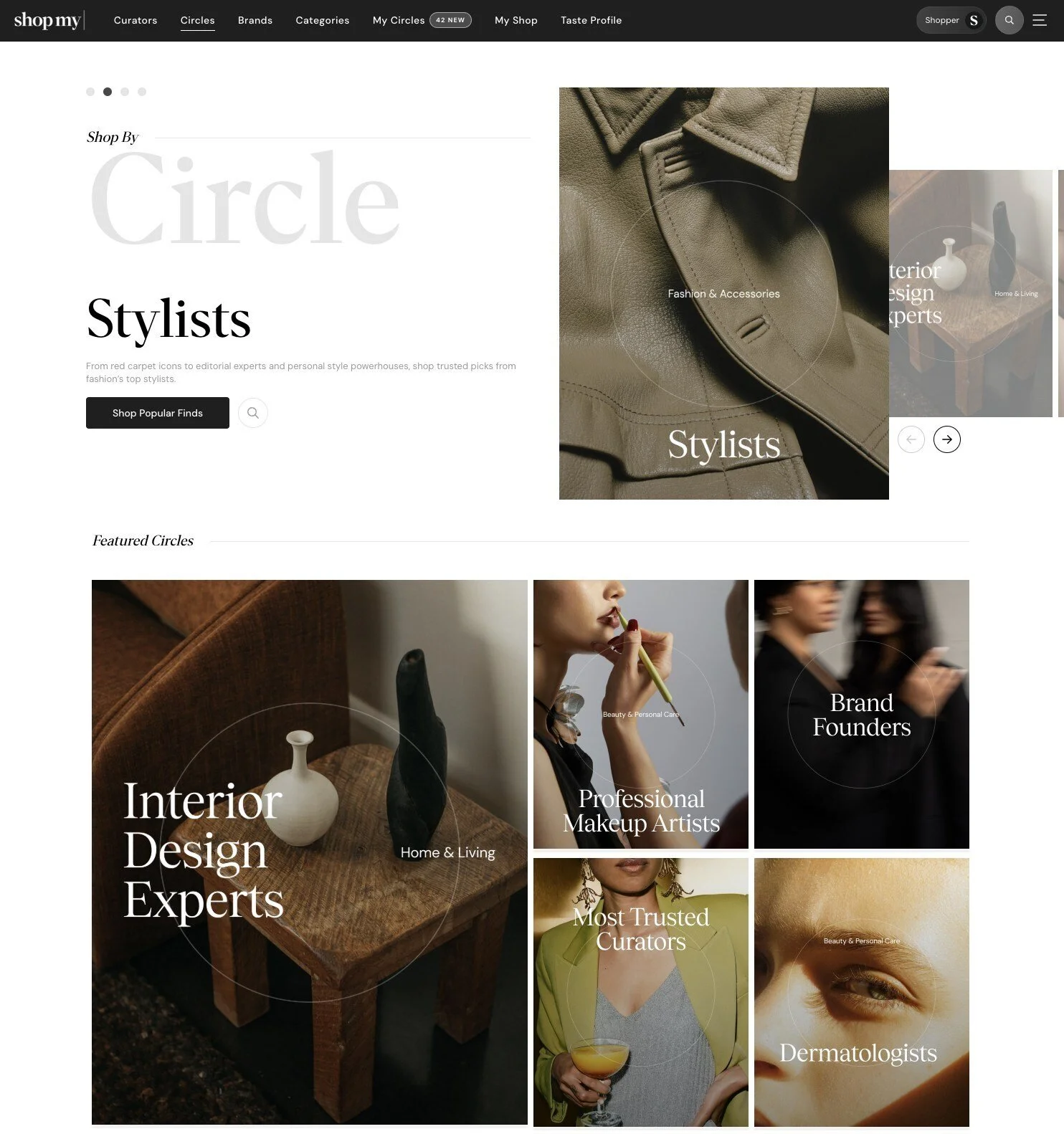LTK & ShopMy Push Towards Social, Curation & Community Shopping With New Features
The affiliate space continues to evolve, as both affiliate platforms LTK and ShopMy rolled out notable new features this week.
What's New
LTK added Public Profiles, allowing users to share with their friends the creators they follow, their saved posts, and their favorite products. It also added two-way messaging between creators and their communities, plus upgrades to search functionality.
This builds on LTK's recent focus on moving beyond affiliate tools and more into a social media platform, which makes sense as more than half of its traffic is direct.
Meanwhile, ShopMy made its first major push around its consumer experience by debuting Circles, which allow users to build their profiles and create curated groups of creators they trust, then get a dynamic feed of product recommendations from those specific creators.
Community & Curation-Powered Shopping
While these updates are different, there are underlying themes to both: shopping is becoming more about community and curation.
In LTK's case, the addition of consumer profiles and messaging creates new ways for people to shop through their friends and direct interactions with creators. For ShopMy, it's putting creators at the forefront of shopping through curation.
Both approaches make sense. While algorithms have been powerful in surfacing creators and products to audiences, much of what matters when it comes to deciding to purchase something is friends and those you trust already — algorithms don't always serve that need.
Growing Competition in Creator Commerce
The creator commerce and affiliate space is an increasingly crowded battlefield. In addition to LTK and ShopMy, there are others like Mavely, bigger legacy affiliate platforms like Impact, Awin, and Rakuten, while social media platforms TikTok and YouTube have their own affiliate shopping solutions. Brands themselves are launching creator programs rooted in commission payouts.
This environment provides numerous ways for creators to expand their revenue streams, but also creates challenges around which platforms and tools to use and how to make the most of them. Do creators focus on one platform or diversify like they would with social media platforms? Diversification seems necessary, especially considering scenarios where affiliate payments platforms can shut down and pivot, which happened with Flagship recently closing its creator storefronts to focus on AI-powered creator-brand matching.
The Opportunity for Talent Agencies & Managers
Perhaps the most interesting development is how this impacts talent managers. More creators are bringing on talent managers, often to broker brand partnerships that focus on traditional sponsored content and guaranteed payouts. But as more brands seek relationships with creators focused on performance, there's an opportunity for talent managers to help creators with affiliate strategy — from choosing platforms to developing actual strategies that go beyond just a list of affiliate links.
"What is important to understand is that affiliate marketing is an art form in of itself. It is not just about posting a link to something, but there is a real strategy and it's going to be a challenge for some talent managers to intersect this revenue stream on behalf of their clients," industry vet Larry Shapiro, CEO and Co-Founder of The Creator Society, which helps creators with their affiliate marketing strategy, build their own brands, along with brand partnerships, and more, told me.
"It is very high touch and must be done right. Our managers know what types of affiliate content convert best for each talent. From collages to vulnerable conversations, these videos are programmed in a way that creates the best conversion. This means that talent managers need to adjust and understand the true data and ways these platforms work. Issues like order conversions and how many impressions and how to get there are what's important — not just that a brand has a high commission rate on an affiliate deal."
With affiliate marketing growing as a revenue stream for creators, it's going to be something to keep an eye on for creators, those who support creators, brands, the platforms enabling them, and more. So stay tuned for more on this front.
Related: Why Industry-Wide Standardization of Influencer Marketing Pricing May Never Happen
Want more creator economy news, trends, and insights? Sign up for my newsletter and follow me on LinkedIn, Threads, and Instagram.


